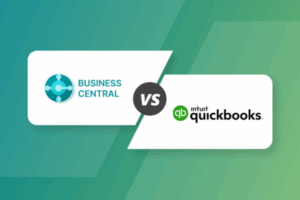Understanding ERP: The Basics and Its Importance for Small Construction Companies
Enterprise Resource Planning (ERP) is a software system that integrates various business functions and processes into a unified platform. It allows companies to streamline operations, improve efficiency, and make data-driven decisions. ERP systems provide real-time visibility into different aspects of a business, enabling better resource allocation, cost control, and overall management.
For small construction companies, implementing an ERP system can be a game-changer. It offers numerous benefits that can address the unique challenges faced by these companies. Let’s delve into the basics of ERP and understand its importance for small construction companies.
What is ERP?
At its core, ERP is a centralized database system that connects various departments and functions within a company, such as finance, project management, procurement, inventory management, human resources, and customer relationship management. It eliminates the need for separate software applications and manual data entry, allowing for seamless integration and sharing of information across different departments.
ERP systems typically consist of modules or applications that are designed to handle specific business functions. These modules can be customized to meet the specific needs of a small construction company, ensuring that the system is tailored to their requirements.
Key Benefits of ERP for Small Construction Companies
- Streamlined Operations: ERP systems automate and streamline key processes, reducing manual effort and eliminating duplication of work. This leads to improved efficiency, reduced errors, and faster response times.
- Enhanced Project Management: ERP systems provide comprehensive project management capabilities, allowing small construction companies to plan, track, and manage projects effectively. They provide real-time visibility into project progress, resource allocation, budgeting, and scheduling.
- Integrated Inventory Control and Equipment Tracking: ERPs enable accurate tracking and management of inventory levels, ensuring that materials and equipment are available when needed. This helps prevent delays and cost overruns due to material shortages. Additionally, ERP systems can track equipment usage, maintenance schedules, and depreciation, enabling better asset management.
- Efficient Accounting and Financial Management: ERP systems automate financial processes, including accounts payable, accounts receivable, general ledger, and financial reporting. This improves accuracy, reduces manual errors, and provides better financial control. It also facilitates timely invoicing, payment processing, and financial analysis.
- Effective Human Resources and Payroll Management: ERP systems centralize HR functions such as employee information, attendance tracking, leave management, and payroll processing. This streamlines HR processes, improves data accuracy, and ensures compliance with labor regulations.
- Improved Customer Relationship Management: ERP systems incorporate customer relationship management (CRM) modules, enabling small construction companies to manage customer interactions, track sales leads, and streamline marketing efforts. This leads to better customer satisfaction, increased sales, and improved customer retention.
- Data-driven Decision Making: With real-time data available across the organization, ERP systems empower small construction companies to make informed decisions. Key performance indicators, analytics, and reporting tools provide insights into various aspects of the business, enabling proactive decision-making and strategic planning.
The Importance of ERP for Small Construction Companies
Implementing an ERP system is vital for small construction companies due to several reasons:
- Enhanced Efficiency: ERP streamlines processes and eliminates manual tasks, leading to increased productivity and efficiency. This allows companies to complete projects on time and within budget.
- Improved Collaboration: ERP systems enable seamless communication and collaboration across departments, fostering teamwork and enhancing overall productivity.
- Better Resource Management: ERP provides real-time visibility into resource availability, helping companies optimize their use of materials, equipment, and labor. This leads to improved resource allocation and cost control.
- Cost Savings: By reducing manual effort, eliminating duplicate data entry, and improving inventory management, ERP systems can result in significant cost savings for small construction companies.
- Scalability and Growth: ERP systems can scale with the growth of a small construction company, accommodating increased project volume, additional users, and expanded operations.
In conclusion, ERP systems offer small construction companies a powerful tool to streamline operations, improve project management, and enhance overall efficiency. The integrated nature of ERP allows for better resource management, cost control, and data-driven decision-making. By implementing an ERP system tailored to their specific needs, small construction companies can achieve growth, profitability, and a competitive edge in the industry.
Key Features of ERP for Small Construction Companies
When considering an ERP system for a small construction company, it is essential to understand the key features that are specifically designed to address the unique needs and challenges of the construction industry. These features enable small construction companies to streamline their operations, enhance project management, improve financial control, and optimize resource allocation. Let’s explore the key features of ERP systems that are particularly relevant for small construction companies:
1. Project Management Capabilities
Effective project management is crucial for small construction companies to ensure projects are completed on time, within budget, and according to specifications. ERP systems offer robust project management capabilities that encompass various aspects of project execution, such as:
- Project planning and scheduling: ERP systems provide tools to create project plans, define tasks, allocate resources, and set timelines. This helps in creating realistic project schedules and ensuring efficient resource utilization.
- Cost estimation and budgeting: ERP systems enable accurate estimation of project costs by considering factors such as labor, materials, equipment, subcontractors, and overhead expenses. Budgeting tools allow for tracking project expenses and comparing them against the budget.
- Resource allocation and management: ERP systems provide visibility into resource availability, enabling project managers to assign the right resources to the right tasks. This helps optimize resource utilization and avoid bottlenecks.
- Progress tracking and reporting: ERP systems allow real-time tracking of project progress, providing visibility into milestones, task completion, and overall project status. Reports and dashboards provide project managers with key performance indicators (KPIs) for effective monitoring and decision-making.
2. Inventory Control and Equipment Tracking
Efficient management of inventory and equipment is essential for smooth construction operations. ERP systems offer features that facilitate accurate inventory control and equipment tracking, including:
- Material management: ERP systems enable inventory tracking, including procurement, receipt, storage, and usage of construction materials. By automating these processes, companies can avoid stockouts, minimize waste, and optimize inventory levels.
- Equipment tracking and maintenance: ERP systems allow for tracking equipment usage, maintenance schedules, and repair history. This ensures that equipment is properly maintained, minimizing downtime and extending the lifespan of assets.
- Tool management: ERP systems enable tracking and allocation of tools, ensuring that the right tools are available for each project. This helps improve productivity and reduces the risk of lost or misplaced tools.
3. Accounting and Financial Management
Accurate financial management is critical for small construction companies to maintain profitability and financial stability. ERP systems provide comprehensive accounting and financial management features, including:
- Accounts payable and receivable: ERP systems automate the management of vendor invoices, purchase orders, and payment processing. They also facilitate timely invoicing, track customer payments, and manage accounts receivable.
- General ledger and financial reporting: ERP systems allow companies to maintain a centralized general ledger, ensuring accurate and up-to-date financial records. They also provide reporting tools to generate financial statements, track project costs, and analyze financial performance.
- Job costing: ERP systems enable job costing functionality, allowing companies to track and allocate costs to specific projects. This helps in determining project profitability and identifying areas for cost optimization.
- Payroll management: ERP systems automate payroll processes, including employee time tracking, wage calculation, tax deductions, and direct deposit. This ensures accurate and timely payroll processing.
4. Human Resources and Payroll
Efficient management of human resources is vital for small construction companies to attract, retain, and develop a skilled workforce. ERP systems offer HR and payroll management capabilities, including:
- Employee information management: ERP systems centralize employee data, including personal information, employment history, skills, and certifications. This provides a comprehensive view of the workforce and facilitates effective HR management.
- Leave management: ERP systems automate leave tracking, including vacation, sick leave, and other time-off requests. This ensures accurate leave calculations and simplifies the leave approval process.
- Time and attendance tracking: ERP systems enable the recording and tracking of employee time and attendance, ensuring accurate payroll calculations and compliance with labor regulations.
- Training and development: ERP systems offer features to manage employee training, including tracking certifications, scheduling training sessions, and monitoring training progress. This helps in developing a skilled workforce and ensuring compliance with industry standards.
5. Customer Relationship Management
Maintaining strong customer relationships is crucial for the success of small construction companies. ERP systems integrate customer relationship management (CRM) capabilities to help companies effectively manage customer interactions, track leads, and streamline sales and marketing efforts. Key features include:
- Lead and opportunity management: ERP systems provide a centralized platform to track and manage sales leads and opportunities. This helps in prioritizing sales efforts, nurturing leads, and converting opportunities into projects.
- Customer communication and support: ERP systems enable companies to maintain a comprehensive customer database, track interactions, and provide efficient customer support. This enhances customer satisfaction and fosters long-term relationships.
- Marketing campaign management: ERP systems offer tools to plan, execute, and track marketing campaigns, including email marketing, social media integration, and analytics. This helps in targeting the right audience and measuring the effectiveness of marketing efforts.
By leveraging these key features of ERP systems, small construction companies can significantly improve their operations, streamline processes, and achieve better business outcomes. In the next section, we will discuss how to choose the right ERP solution for your small construction company based on your specific requirements.
Choosing the Right ERP Solution for Your Small Construction Company
Choosing the right ERP solution for your small construction company is a critical decision that requires careful consideration. With numerous options available in the market, it is important to evaluate different ERP solutions based on your specific business requirements. Here are the key factors to consider when choosing an ERP solution for your small construction company:
1. Understanding Your Business Requirements
Before selecting an ERP solution, it is crucial to assess your business needs and identify the specific functionalities and features that are essential for your construction operations. Consider the following factors:
- Project management requirements: Determine the level of project management capabilities you require, such as scheduling, resource allocation, cost estimation, and progress tracking.
- Inventory and equipment management needs: Assess your inventory control and equipment tracking requirements, including material management, equipment maintenance, and tool tracking.
- Financial and accounting requirements: Identify your financial management needs, such as accounts payable and receivable, general ledger, job costing, and payroll management.
- Human resources and payroll needs: Determine the HR and payroll functionalities you require, including employee information management, leave tracking, time and attendance, and training management.
- Customer relationship management requirements: Consider your CRM needs, such as lead and opportunity management, customer communication, and marketing campaign management.
By understanding your specific business requirements, you can focus on ERP solutions that offer the necessary features and functionalities to meet your needs.
2. Evaluating Different ERP Solutions
Once you have identified your business requirements, it is time to evaluate different ERP solutions available in the market. Consider the following factors during the evaluation process:
- Functionality and customization: Assess the core functionalities of each ERP solution and determine if they align with your business requirements. Additionally, evaluate the flexibility of the system to customize and adapt to your specific needs.
- Integration capabilities: Check if the ERP solution can integrate with other software applications or systems that you currently use, such as project management tools, estimating software, or accounting systems.
- User-friendliness and ease of implementation: Consider the ease of use and implementation process of each ERP solution. Look for solutions that have intuitive interfaces and offer support during the implementation phase.
- Scalability and future growth: Ensure that the ERP solution can scale with your business as it grows. Consider factors such as user capacity, storage capabilities, and the ability to handle increased project volume.
- Mobile accessibility: If mobile access is essential for your construction operations, evaluate the mobile capabilities of each ERP solution. Consider whether the system offers mobile apps or responsive web interfaces for on-the-go access.
3. Considering the Cost and Return on Investment
Cost is an important factor to consider when choosing an ERP solution for your small construction company. Evaluate the cost structure of each ERP solution, including:
- License and subscription fees: Determine the upfront costs, ongoing subscription fees, or licensing fees associated with the ERP solution. Consider if the pricing model aligns with your budget and financial capabilities.
- Implementation and training costs: Assess the costs involved in implementing the ERP system, such as data migration, configuration, and staff training. Consider if the implementation costs are reasonable and if the vendor offers adequate support during the process.
- Maintenance and support fees: Evaluate the ongoing maintenance and support fees associated with the ERP solution. Consider if the vendor provides timely support and regular system updates.
While cost is important, it is also essential to evaluate the return on investment (ROI) that the ERP solution can provide. Consider the potential benefits, such as increased productivity, cost savings, improved project management, and better decision-making, and weigh them against the costs involved.
4. Checking Vendor Reputation and Support Capabilities
When selecting an ERP solution, it is crucial to assess the reputation and support capabilities of the ERP vendor. Consider the following factors:
- Vendor experience and industry expertise: Research the vendor’s track record and experience in providing ERP solutions to the construction industry. Look for vendors that have a strong understanding of construction operations and can offer industry-specific expertise.
- Customer reviews and references: Read customer reviews and seek references from other small construction companies that have implemented the ERP solution. This will give you insights into the vendor’s reputation and the level of customer satisfaction.
- Support and training: Evaluate the level of support and training provided by the ERP vendor. Consider factors such as availability of customer support, training materials, and documentation to ensure that you receive adequate assistance throughout the implementation and usage of the ERP system.
- Future updates and enhancements: Inquire about the vendor’s plans for future updates and enhancements to the ERP solution. Consider if the vendor regularly releases updates to address industry changes and customer feedback.
By assessing the reputation and support capabilities of the ERP vendor, you can ensure that you choose a reliable and trustworthy partner for your small construction company.
By thoroughly evaluating different ERP solutions based on your specific business requirements, cost considerations, and vendor capabilities, you can select the right ERP solution that will support your construction operations and drive growth and success in your organization. In the next section, we will discuss the implementation process for ERP systems in small construction companies.
Implementing ERP in Your Small Construction Company
Implementing an ERP system in your small construction company is a significant undertaking that requires careful planning and execution. A well-planned implementation process ensures a smooth transition to the new system and maximizes the benefits of ERP for your construction operations. Here are the key steps involved in implementing ERP in your small construction company:
1. Planning for Implementation
Proper planning is essential to ensure a successful ERP implementation. Consider the following aspects during the planning phase:
- Establish an implementation team: Form a dedicated team consisting of key stakeholders from different departments who will be involved in the implementation process. This team will be responsible for coordinating and managing the implementation.
- Define project goals and objectives: Clearly define the goals and objectives of the ERP implementation, such as improving project management, streamlining financial processes, or enhancing resource allocation. These goals will guide the implementation process and help measure the success of the ERP system.
- Develop a project timeline: Create a detailed project timeline that outlines the various stages of the implementation process, including data migration, system configuration, testing, training, and go-live. Ensure that the timeline is realistic and allows for proper testing and training.
- Identify potential risks and mitigation strategies: Identify potential risks and challenges that may arise during the implementation process, such as data migration issues, staff resistance, or system integration challenges. Develop mitigation strategies to address these risks and ensure a smooth implementation.
2. Training Your Staff
Proper training is crucial to ensure that your staff understands how to effectively use the new ERP system. Consider the following training strategies:
- Develop a comprehensive training plan: Create a training plan that outlines the training needs of different user groups within your small construction company. This may include project managers, accounting staff, HR personnel, and other relevant stakeholders. The training plan should cover both technical aspects of using the ERP system and specific workflows relevant to each department.
- Provide hands-on training: Conduct hands-on training sessions where employees can practice using the ERP system in a simulated environment. This will help familiarize them with the system and build confidence in their ability to use it effectively.
- Offer ongoing support: Ensure that ongoing support is available to your staff during and after the implementation process. This can include help desk support, user manuals, online tutorials, and regular training refreshers to address any questions or issues that may arise.
3. Ensuring Data Migration
Data migration is a critical aspect of ERP implementation, as it involves transferring existing data from legacy systems to the new ERP system. Consider the following steps for ensuring a successful data migration:
- Assess data quality and cleanliness: Cleanse and validate your existing data to ensure its accuracy and consistency. This may involve removing duplicates, correcting errors, and standardizing data formats.
- Develop a data migration strategy: Develop a data migration strategy that outlines the specific data to be migrated, the sequence of migration, and the tools and techniques to be used. This strategy should ensure minimal disruption to your ongoing operations.
- Test data migration: Before migrating all your data, conduct thorough testing to verify the accuracy and integrity of the migrated data. This can be done through sample tests or parallel runs to ensure that the data is transferred correctly.
4. Regularly Updating and Upgrading Your ERP System
ERP systems evolve over time, and it is important to keep your system updated and upgraded to leverage the latest features and enhancements. Consider the following practices for maintaining and upgrading your ERP system:
- Stay informed about system updates: Regularly communicate with your ERP vendor to stay informed about system updates, patches, and new releases. These updates often include bug fixes, security patches, and feature enhancements.
- Test updates in a sandbox environment: Before applying updates to your live system, test them in a sandbox environment to ensure compatibility and identify any potential issues. This helps minimize disruption to your ongoing operations.
- Plan for system upgrades: Develop a plan for upgrading your ERP system to newer versions. This may involve assessing the benefits of the upgrade, scheduling the upgrade during a downtime, and conducting thorough testing before going live.
- Seek vendor support: Work closely with your ERP vendor to ensure smooth updates and upgrades. Seek their guidance and support throughout the process to minimize any potential risks or issues.
By following these implementation steps and best practices, your small construction company can successfully implement an ERP system.
In conclusion, implementing an ERP system tailored to the specific needs of a small construction company can be a game-changer. It enables streamlined operations, improved project management, enhanced financial control, and better resource allocation. By learning from the success stories of other small construction companies, you can gain valuable insights and inspiration to embark on your own ERP journey and drive growth and success in your organization.





